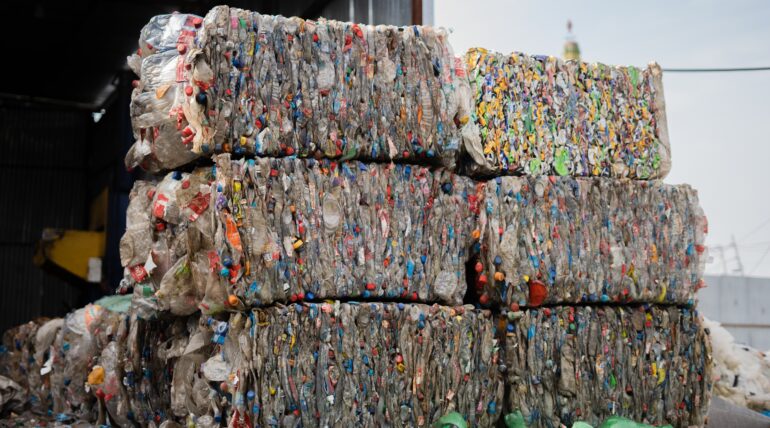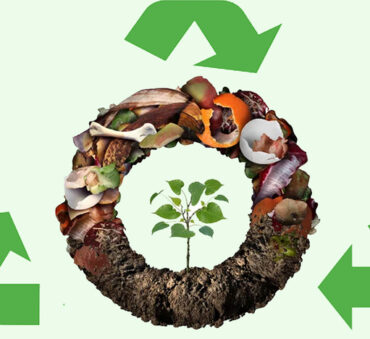With the growing need for sustainability, recycling organic waste has become an overdue and muchneeded responsibility for every business. Despite the increasing awareness about waste management, many businesses still struggle to find efficient ways to manage their organic waste. And that is why companies like Shapiro exist. By having a waste recycling partner, companies can tap into a sustainable and mutually beneficial solution. In this comprehensive article, we will explore the ins and outs of these partnerships, from their potential benefits to the steps needed to establish a successful collaboration.
After reading this article, we hope you will have a clear understanding of why organic waste recycling partnerships are so crucial for businesses and the environment.
What is Organic Waste?
Organic waste refers to any biodegradable materials that originate from plant or animal matter, such as food waste, beverage and alcohol waste, and agricultural recycling waste. Essentially, it is any materials that are rich in carbon and can be broken down by microorganisms into simpler compounds and making them suitable for recycling.
What is organic waste recycling?
As the name would suggest, Organic waste recycling is a systematic process of collecting, processing and converting organic waste materials into valuable products like compost, biogas, or biofuel.
How can organic waste be recycled?
Composting
Composting involves piling organic waste in a designated area or container and allowing microorganisms, such as bacteria and fungi, to decompose the waste over time. The product, of course, being compost, can be used as a natural fertilizer to improve soil fertility and structure in agricultural and landscaping applications.
Anaerobic Digestion
Anaerobic digestion is the biological process where microorganisms break down organic waste in the absence of oxygen. This process produces biogas, which is a mixture of methane and carbon dioxide, that is then captured and utilized as a renewable energy source for either heating, electricity generation, or vehicle fuel. The process also produces a byproduct known as digestate, which can be further processed into fertilizer.
Pyrolysis
Pyrolysis is a thermochemical process that decomposes organic waste at high temperatures in the absence of oxygen. This process converts the organic waste matter into biochar, a carbon-rich product, along with syngas and bio-oil. Biochar is great to be used as a soil amendment to improve soil fertility and sequester carbon, while syngas and bio-oil can be utilized as renewable energy sources or as feedstock.
Animal Feed
Organic waste can also be upcycled into animal feed by recycling certain types of food waste, such as fruit and vegetable scraps, bakery byproducts, and even beer and brewing waste. This process helps reduce the demand for new feed ingredients, especially for feeding livestock, and helps in lowering the pressure on agricultural resources.
The Current State of Organic Waste
The World Bank estimates that by 2050, global waste generation will grow by a staggering 70%. Organic waste, such as food scraps and yard waste, contributes significantly to this figure. In fact, food waste alone accounts for nearly 30% of all waste produced worldwide. From this, it’s clear that there is an urgent need for more businesses around the globe to adopt and implement effective waste management and recycling strategies.
However, the organic recycling industry is certainly not without its challenges. Despite the increase in awareness around the importance of recycling organic waste, there is not enough awareness raised on where and how the waste can be disposed of. Thereby while having the best of intentions, this still leads to improper disposal methods that harm the environment.
Also, in many regions, there is insufficient infrastructure for collecting, processing, and recycling organic waste, making it difficult for businesses to adopt these practices.
Finally, there is also the absence of inconsistent regulations regarding organic waste management, which is hindering the development and adoption of recycling practices in businesses.
We are starting to see more and more Innovative solutions emerging to address the existing challenges, and businesses that are committed to environmental sustainability are making great strides in managing and recycling their organic waste.
What is a recycling partner, and how can they help?
A recycling partner is a company or organization that collaborates with businesses to efficiently manage and process their waste, including the recycling of food waste, beverages, or other organic materials. This allows businesses to focus on their core operations and reap numerous benefits while the recycling partner handles the complexities of organic waste management. Some of the key benefits include:
1. Expertise and experience: Recycling specialists have extensive knowledge and experience in handling organic waste, from collection to processing and recycling. They can provide businesses with tailored solutions that cater to their specific needs, requirements, and types of waste being handled.
2. Compliance with regulations: A professional recycling partner will be well-versed in the rules and regulations governing waste management and disposal, thereby businesses reduce their risk of penalties or fines.
3. Cost savings: Of course, one of the feature benefits is that they can help businesses save money by reducing waste disposal costs, optimizing waste management processes, and can also assist in identifying potential waste reduction strategies, leading to further savings.
4. Improved sustainability: They help by ensuring that organic waste is recycled or repurposed in an eco-friendly manner. The added benefit to this is that this can enhance the company’s reputation and make it more appealing to environmentally conscious customers and investors.
5. Resource recovery: Recycling partners can help businesses transform their organic waste into valuable resources, such as compost, biogas, or biofuels. This not only reduces waste but also provides additional revenue streams or energy sources for the business.
6. Streamlined operations: By outsourcing their organic waste management, businesses can focus on their core operations and concentrate on what they do best.
How We Establish a Successful Collaboration as Your Organic Recycling Partner
At Shapiro Enterprises, we pride ourselves on our ability to build and maintain successful collaborations with businesses as their trusted recycling partner. Our approach involves a combination of communication, understanding, and commitment to meeting the unique needs of each business we work with.
1. Understanding your business needs
Our first step in establishing a successful collaboration is to gain a thorough understanding of your business’s specific waste management requirements. We take the time to learn about your waste generation, disposal practices, and sustainability goals, allowing us to tailor our recycling solutions to your unique circumstances.
2. Developing a clear plan
Once we have a clear understanding of your needs, we will work with you to develop a comprehensive waste management plan that aligns with your goals and regulatory requirements. This plan outlines the waste collection, processing, and recycling strategies we will implement to help you manage your organic waste effectively and sustainably.
3. Clear communication and coordination
We believe that open communication and seamless coordination are key to the success of any partnership. Our team works closely with your business to ensure that all waste management activities are carried out efficiently and in accordance with environmental regulations. We maintain regular contact to address any concerns and discuss potential improvements to the waste management process.
4. Continuous improvement and adaptation
The needs of a business can change over time, and we are committed to adapting our services accordingly. This ensures that our partnership remains successful and continues to meet your evolving waste management goals.
The Future of Organic Waste Recycling Partnerships
As these partnerships between eco-minded businesses and driven recycling companies continue to evolve, the future of organic waste recycling looks increasingly promising, and we are seeing several emerging trends that cultivate a more sustainable and circular economy:
Innovations in waste recycling technology
The continuous development of new technologies, such as artificial intelligence and advanced processing systems, will make organic waste recycling more efficient and cost-effective as they will enable more advanced and tailored solutions to businesses, ultimately leading to a higher adoption rate.
The role of policy and regulation
As governments worldwide become more focused on environmental issues, regulations and incentives are expected to play a larger role in encouraging businesses to adopt organic waste recycling practices. These policies will promote the formation of recycling partnerships by providing financial incentives, streamlining the permitting process, and setting clear guidelines for waste management.
Expanding partnerships to include more stakeholders
Although some great waves have already been made in this area, recycling partnerships are likely to involve a broader range of stakeholders, including local governments, non-governmental organizations, and communities. This will help to create a more circular economy, where waste is viewed as a valuable resource rather than a burden. By connecting and engaging multiple stakeholders, it opens the door to more comprehensive solutions.
Increased focus on reduction and prevention
While these partnerships will continue to play a vital role, we are seeing and expecting a growing emphasis on waste reduction and prevention strategies to identify and implement practices that minimize waste generation at the source.
Conclusion
Organic waste recycling partnerships hold immense potential for businesses and the environment, offering a practical and sustainable solution to manage waste effectively. If your business is ready to take the next step in managing its organic waste responsibly, don’t hesitate to contact Shapiro for all your organic waste & recycling management solutions.
Baily Ramsey, an accomplished marketing specialist, brings a unique blend of anthropological insight and marketing finesse to the digital landscape. Specializing in educational content creation, she creates content for various industries, with a particular interest in environmental initiatives.


